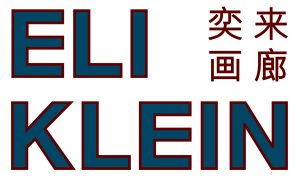Thomas Thwaites
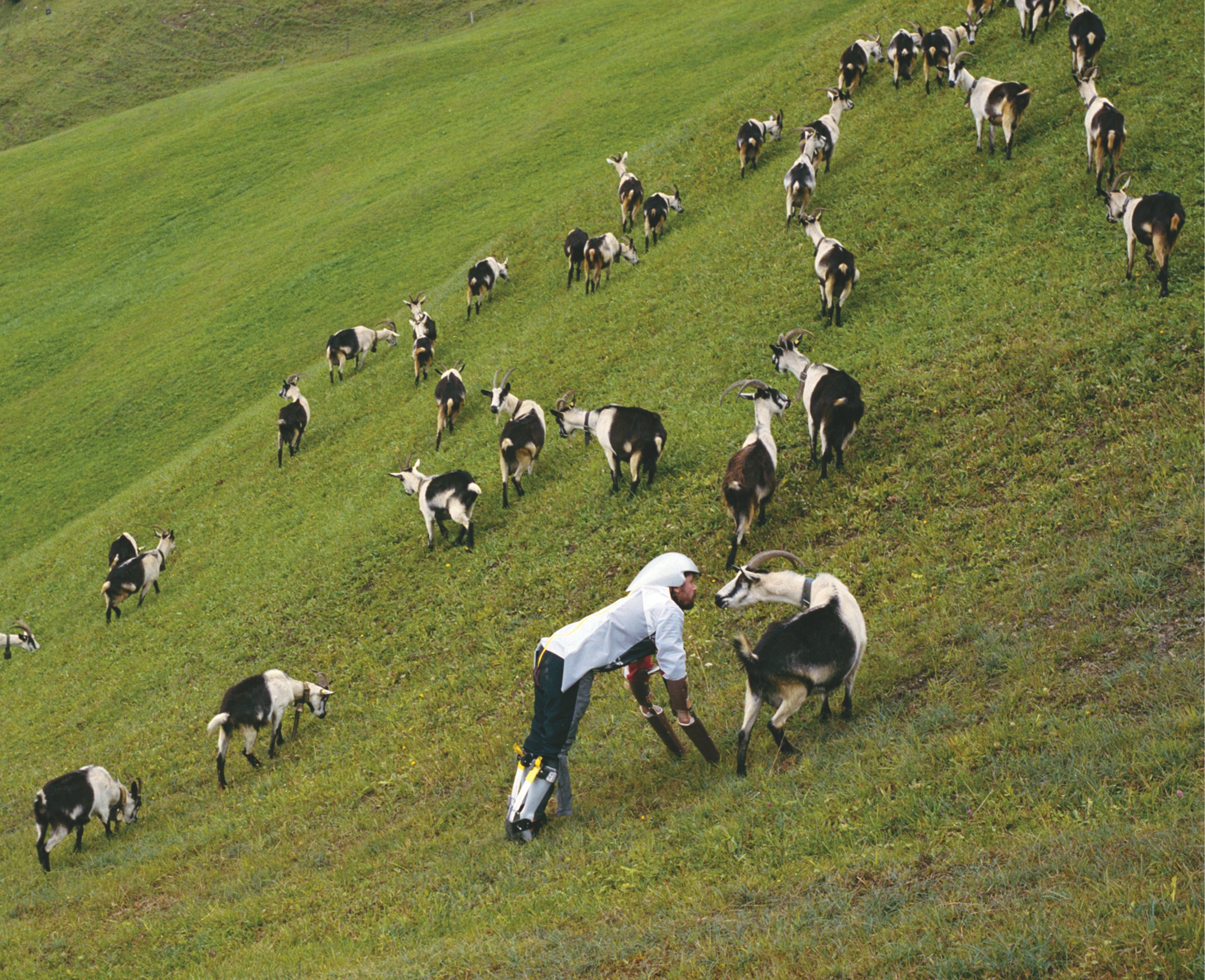
Meta.Morf 2022 – Ecophilia / Trøndelag Centre for Contemporary Art / May 19 – July 31 /
Curator: Zane Cerpina / Co-curator: Espen Gangvik
Goatman (A holiday from being human) / 2015
Thomas Thwaites [UK]
Goatman began as a project to take a holiday from being human; to escape the stress and worry of being a person in human society with all its moral and practical complexities. There is a lot to worry about personally and globally, and with worry comes guilt and regret for failing to do ‘the right thing’. So: wouldn’t it be nice to just trot away from it all and become a goat, free to roam, free from worry, free from guilt? To have a holiday not only from your day-to-day life, but from yourself as well?
But underlying the project is a question about ‘progress’: the notion that our species and our civilization is progressing toward something better: our spinning of stories out of our pasts and our futures, our regrets and our hopes.
I found trying to become a lowly, humble goat spiritually (as well as physically) uncomfortable: was I trying to go ‘backwards’, to de-volve? This discomfort led me to realise, that although I don’t consider myself religious, I’d been swept up/indoctrinated in a secular grand narrative; that there is a hierarchy of species, and that despite a few setbacks along the way, a rationalist liberal high technology culture will ultimately emerge as the end of our history. The techno-optimist idea that we as a species are progressing and evolving away from our base, savage uncultured ancestors, and toward an enlightened post-human future, possibly even colonising other planets.
Ernest Becker in the Denial of Death (1973), stated that currently ‘we are gods with anuses’: we’re high-tech cyborgs able to transcend so much of our biology, but yet we still must succumb to our biology, eating and defecting, and ultimately will die and rot away. Becker argued it is cognitive dissonance arising from this dual view of ourselves, that drives our need to be part of grand narratives, be they religious, nationalistic, aristocratic, or techno-scientific. We can’t quite face our knowledge of our own mortality, so we need to latch on to the idea we’re part of something greater.
The post-human answer to resolving this dissonance is to continue developing technology which will ultimately allow us to sever our link with our mortal fleshy biology, curing old age and death, and thus become fully god-like (and in the case of ‘mind-uploading’ to literally relieve ourselves from the necessity of having an anus).
As I pursued my dream of becoming a goat I realised I’d soaked in this optimistic vision of the future growing up, and at least subconsciously believed I was contributing in some small way to progressing human civilisation toward some kind of Star Trek future. And so Goatman became about enacting an alternative route out of our dissonance; to remove the godlike part in us. I wanted to personally come to terms with the idea that there is no ‘human destiny’ that we are all a part of, to stop thinking about ‘the future’ as a kind of destination, to stop striving, to remove humanity from the top of some imaginary hierarchy of nature, to expunge Descartes, and to present an alternative humble future of the post-human to aim for: the life of a goat on a hillside.
Should we dream of a future amongst the stars, or should we dream of a future akin to the life of a goat on a mountainside?
Thomas Thwaites
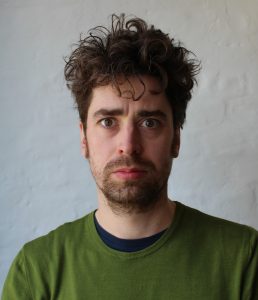 Thomas Thwaites is a designer interested in the social impacts of science and technology. He holds an MA in Design Interactions from the Royal College of Art, and a BSc. in Human Sciences from University College, London.
Thomas Thwaites is a designer interested in the social impacts of science and technology. He holds an MA in Design Interactions from the Royal College of Art, and a BSc. in Human Sciences from University College, London.
His work is in the permanent collections of the Victoria & Albert Museum in London, the Banque De France (Cite de l’Economie in Paris), and the Asia Culture Centre in South Korea. His work is exhibited at major galleries and museums worldwide, including at the National Museum of China, the Museum of Modern and Contemporary Art in Seoul, the Science Museum (London), the Cooper Hewitt in the USA and La Triennale di Milano (Italy). He has spoken at numerous conferences, including TED and Design Indaba, as well as at universities and businesses worldwide. Press includes features in national newspapers including the New York Times, Süddeutsche and The Financial Times. He has presented a four part television series, aired on Discovery Channel.
He is the author of two books; The Toaster Project, and GoatMan. The Toaster Project documents Thwaites’ attempt to make an electric toaster from scratch. Goatman describes his project to take a holiday from being human by becoming a goat. Both are published by Princeton Architectural Press, and have been translated into Korean, Japanese and Norwegian.
Header Graphics: “Goatman” by Thomas Thwaites. Photo credit: Tim Bowditch.
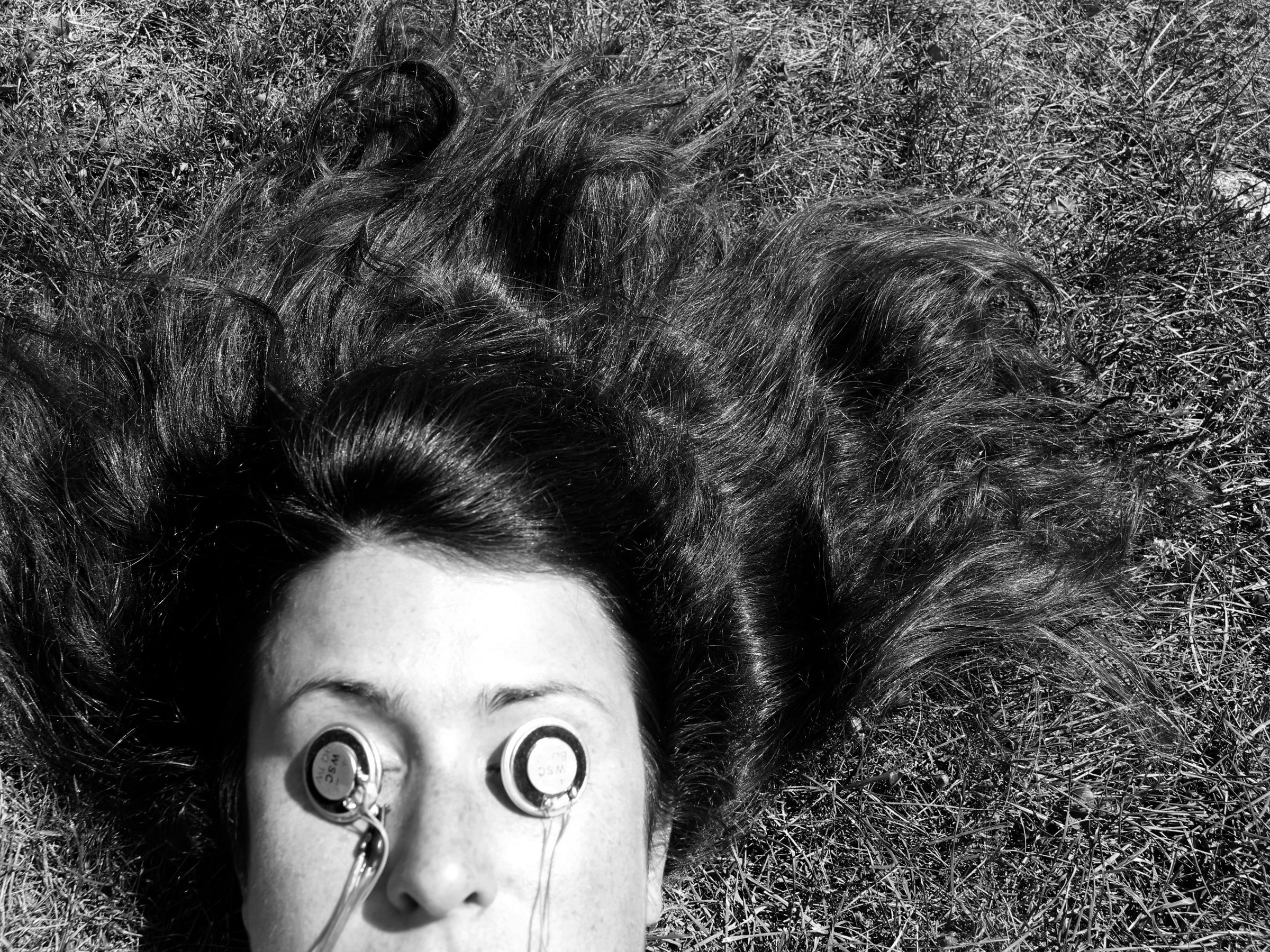
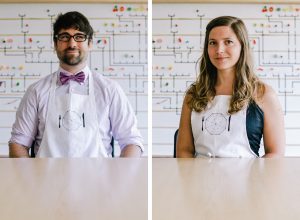 The Center for Genomic Gastronomy is an artist-led think tank launched in 2010 by Cathrine Kramer (NO) and Zack Denfeld (US) that examines the biotechnologies and biodiversity of human food systems.
The Center for Genomic Gastronomy is an artist-led think tank launched in 2010 by Cathrine Kramer (NO) and Zack Denfeld (US) that examines the biotechnologies and biodiversity of human food systems.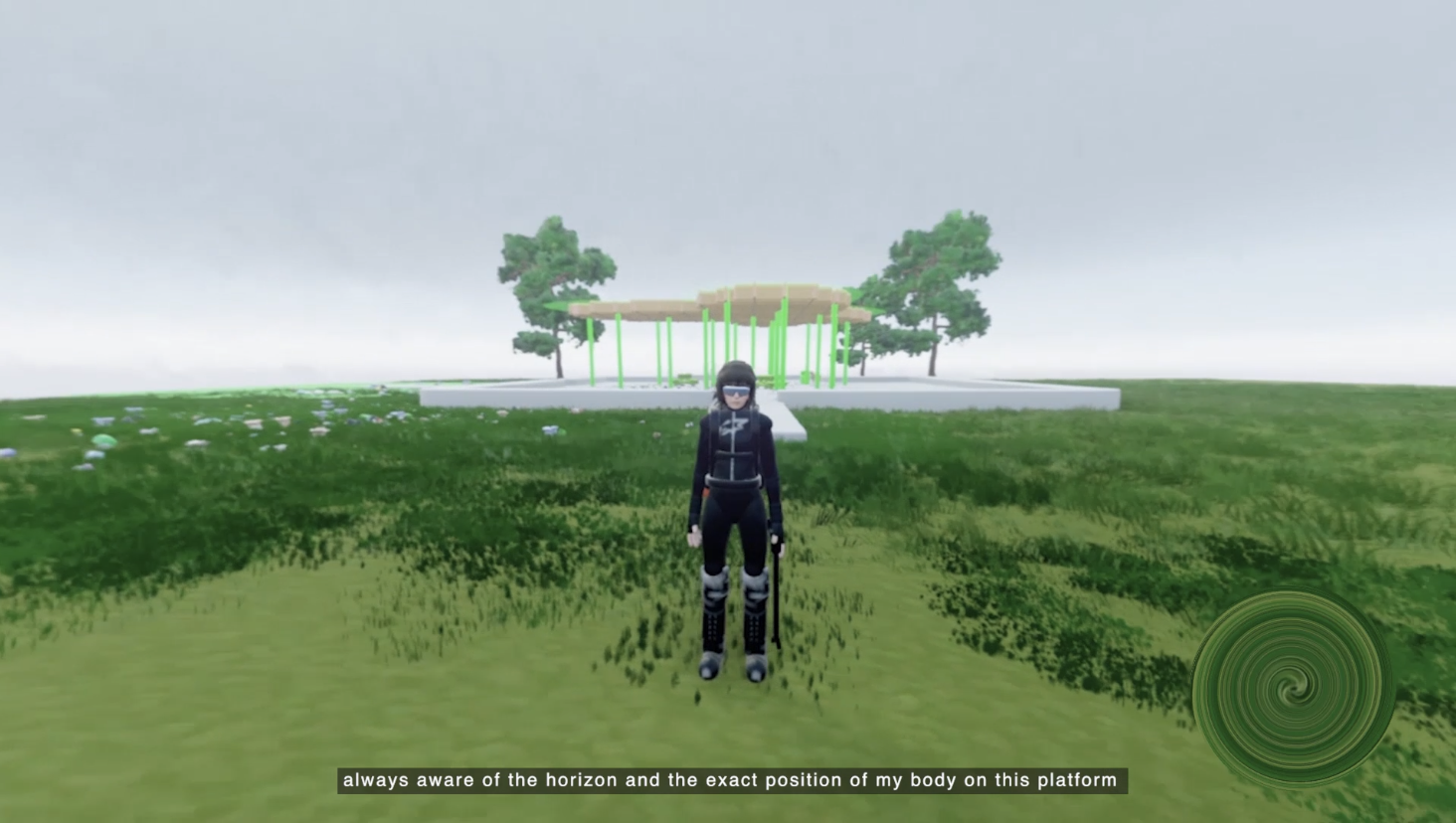
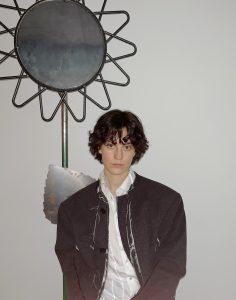 Annie Hägg, born in Växjö, Sweden, received her Bachelor in Fine arts from Oslo National Academy of the Arts in 2021. Hägg’s work focuses on the constructed and designed aspects of modern society both from a social, economical and environmental point of view. Her practice includes storytelling as a way of articulating how characteristics of contemporary changes affect our perception of reality and emotional states, how they manifest in the mind and the body.
Annie Hägg, born in Växjö, Sweden, received her Bachelor in Fine arts from Oslo National Academy of the Arts in 2021. Hägg’s work focuses on the constructed and designed aspects of modern society both from a social, economical and environmental point of view. Her practice includes storytelling as a way of articulating how characteristics of contemporary changes affect our perception of reality and emotional states, how they manifest in the mind and the body.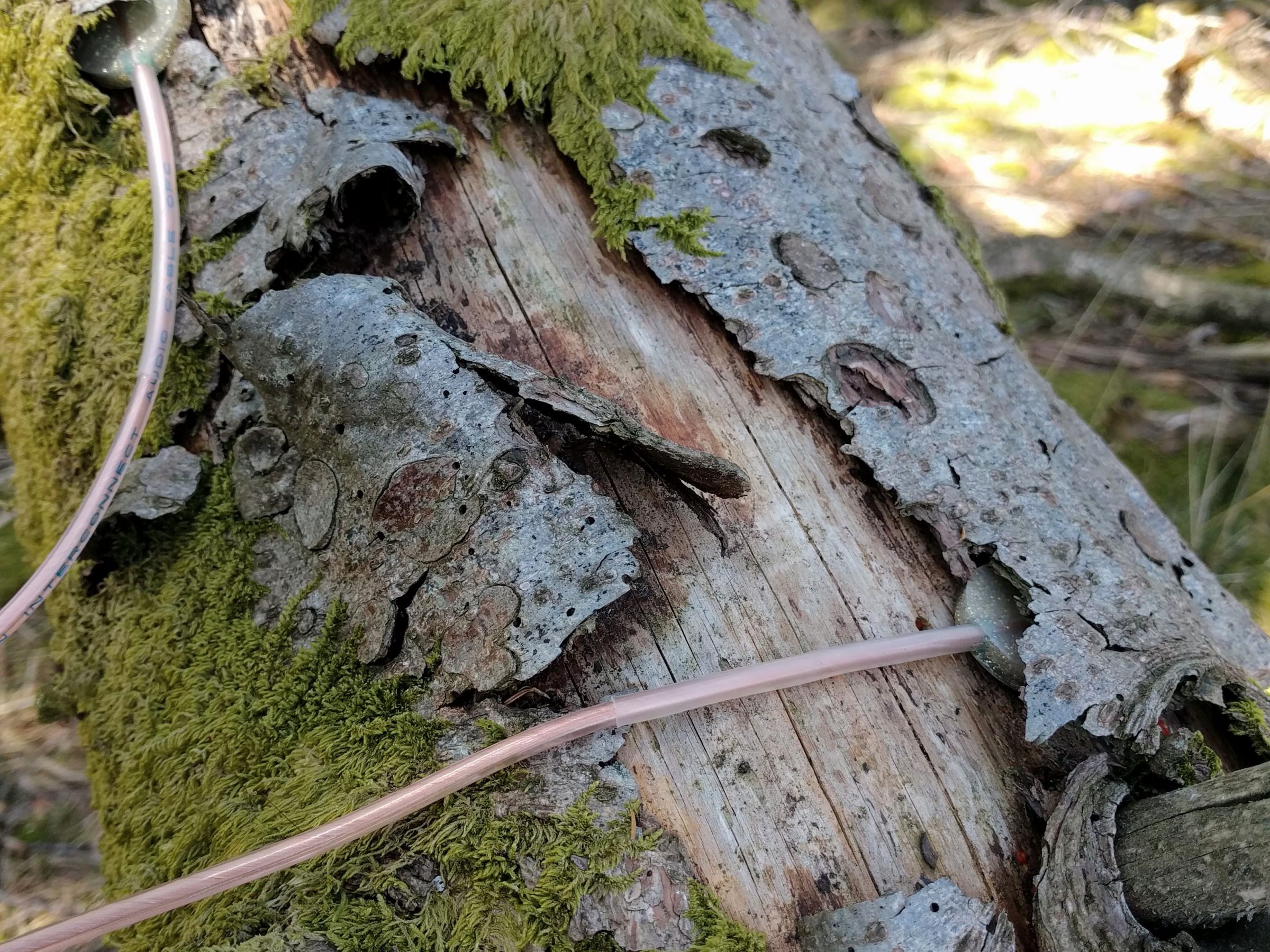
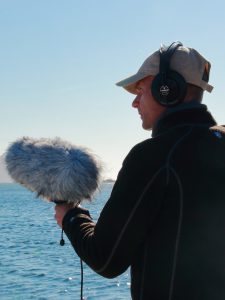 Frank Ekeberg is a transdisciplinary artist, music composer and researcher working in the intersection of art, science and technology. He received an undergraduate degree in music from the Norwegian University of Science and Technology (NTNU) before he went on to pursue a master’s degree in electronic music at Mills College in Oakland, California, where he studied composition with Pauline Oliveros and Alvin Curran, and a PhD in electroacoustic music composition at City University London, UK, under Denis Smalley and Simon Emmerson’s tutelage. Ekeberg’s work explores issues of ecology, time, spatiality and transformation, with a particular focus on nature spaces, ecosystems and the interplay between human and non-human worlds. His research-based approach often involves collaborations within as well as beyond the art field. He has composed and designed sound for concert performance, dance, film, theater, radio plays and intermedia installations. His work is widely presented in festivals, exhibitions, concerts and conferences around the world, including venues such as Museum Angewandte Kunst in Frankfurt, Germany; The Peale Center in Baltimore, Maryland, USA; Kunsthall Trondheim, Norway; Kiasma Museum of Contemporary Art in Helsinki, Finland; Fotografie Forum Frankfurt, Germany; Foggy Bottom Sculpture Biennial in Washington D.C., USA; Seoul Arts Center, Korea; multiple times at the International Symposium on Electronic Art, and many more. Ekeberg was awarded the 2017 Smithsonian Artist Research Fellowship, and is currently Research Associate at the Smithsonian National Museum of Natural History in Washington D.C., USA. Most of the time he lives and works in Trondheim, Norway.
Frank Ekeberg is a transdisciplinary artist, music composer and researcher working in the intersection of art, science and technology. He received an undergraduate degree in music from the Norwegian University of Science and Technology (NTNU) before he went on to pursue a master’s degree in electronic music at Mills College in Oakland, California, where he studied composition with Pauline Oliveros and Alvin Curran, and a PhD in electroacoustic music composition at City University London, UK, under Denis Smalley and Simon Emmerson’s tutelage. Ekeberg’s work explores issues of ecology, time, spatiality and transformation, with a particular focus on nature spaces, ecosystems and the interplay between human and non-human worlds. His research-based approach often involves collaborations within as well as beyond the art field. He has composed and designed sound for concert performance, dance, film, theater, radio plays and intermedia installations. His work is widely presented in festivals, exhibitions, concerts and conferences around the world, including venues such as Museum Angewandte Kunst in Frankfurt, Germany; The Peale Center in Baltimore, Maryland, USA; Kunsthall Trondheim, Norway; Kiasma Museum of Contemporary Art in Helsinki, Finland; Fotografie Forum Frankfurt, Germany; Foggy Bottom Sculpture Biennial in Washington D.C., USA; Seoul Arts Center, Korea; multiple times at the International Symposium on Electronic Art, and many more. Ekeberg was awarded the 2017 Smithsonian Artist Research Fellowship, and is currently Research Associate at the Smithsonian National Museum of Natural History in Washington D.C., USA. Most of the time he lives and works in Trondheim, Norway.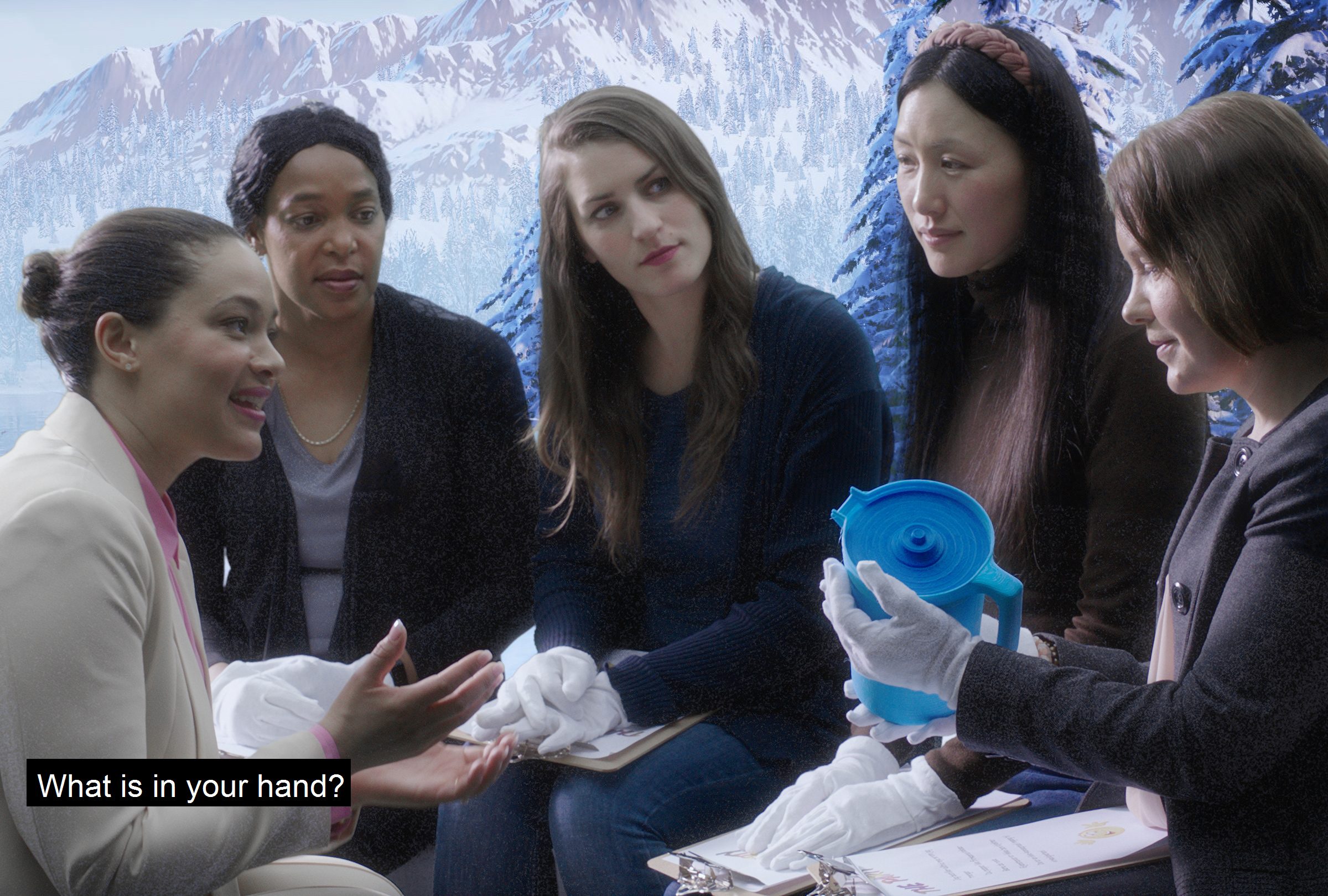
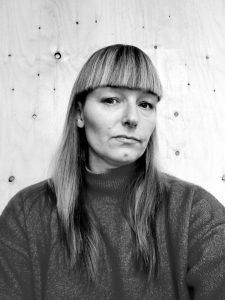 Maren Dagny Juell (1976) is based in Ski, Norway, and works with video, Virtual Reality, and installation.
Maren Dagny Juell (1976) is based in Ski, Norway, and works with video, Virtual Reality, and installation.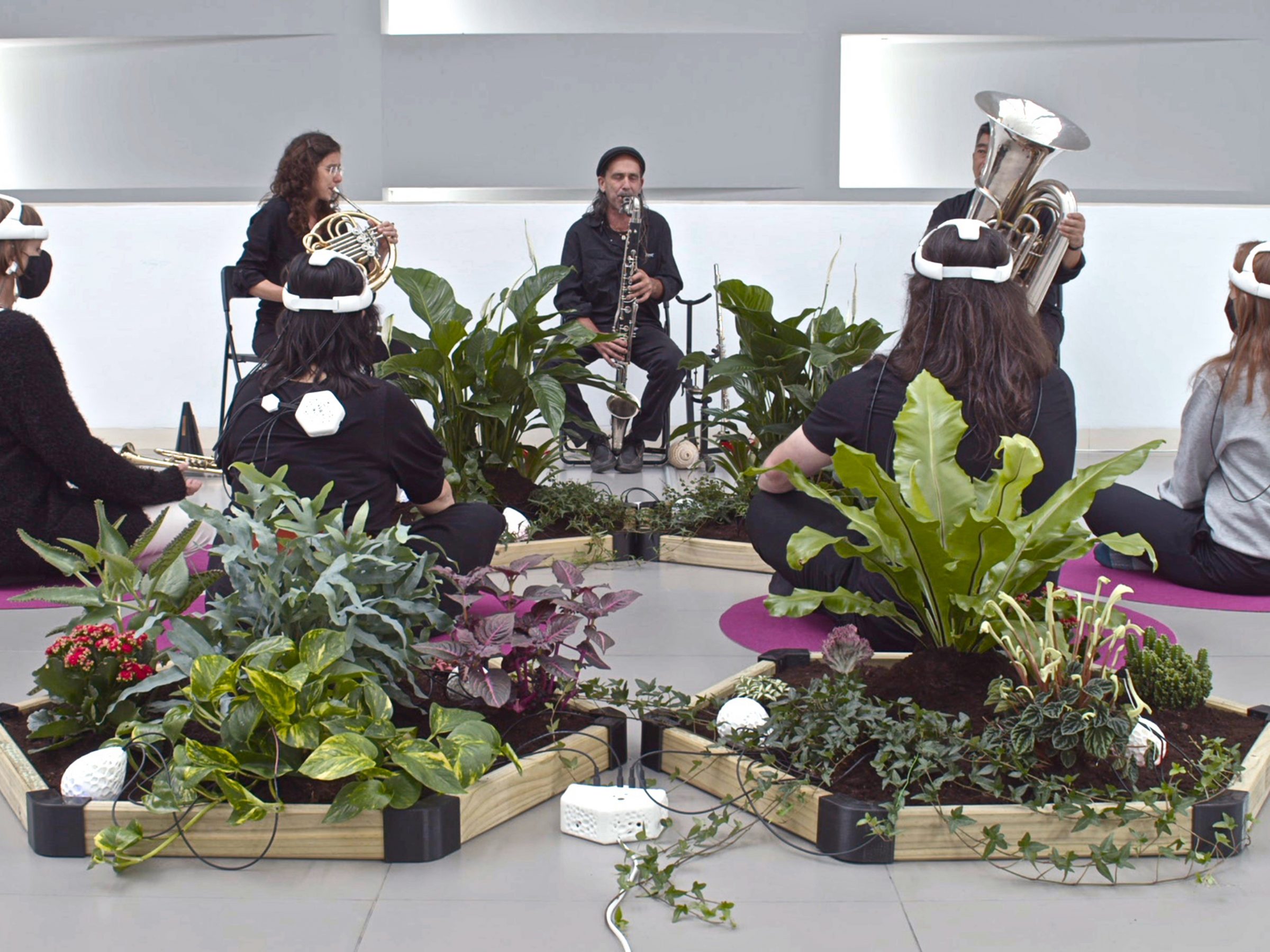
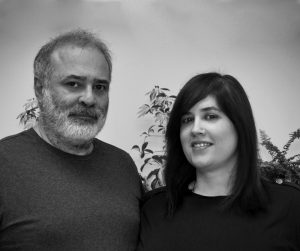 María Castellanos and Alberto Valverde (uh513) began working together as a duo in 2009. María Castellanos is an artist and researcher working at the intersection of art, science, technology and society. Currently she is postdoctoral researcher at Oslo Metropolitan University, in the framework of FeLT Project – Futures of Living Technologies.
María Castellanos and Alberto Valverde (uh513) began working together as a duo in 2009. María Castellanos is an artist and researcher working at the intersection of art, science, technology and society. Currently she is postdoctoral researcher at Oslo Metropolitan University, in the framework of FeLT Project – Futures of Living Technologies.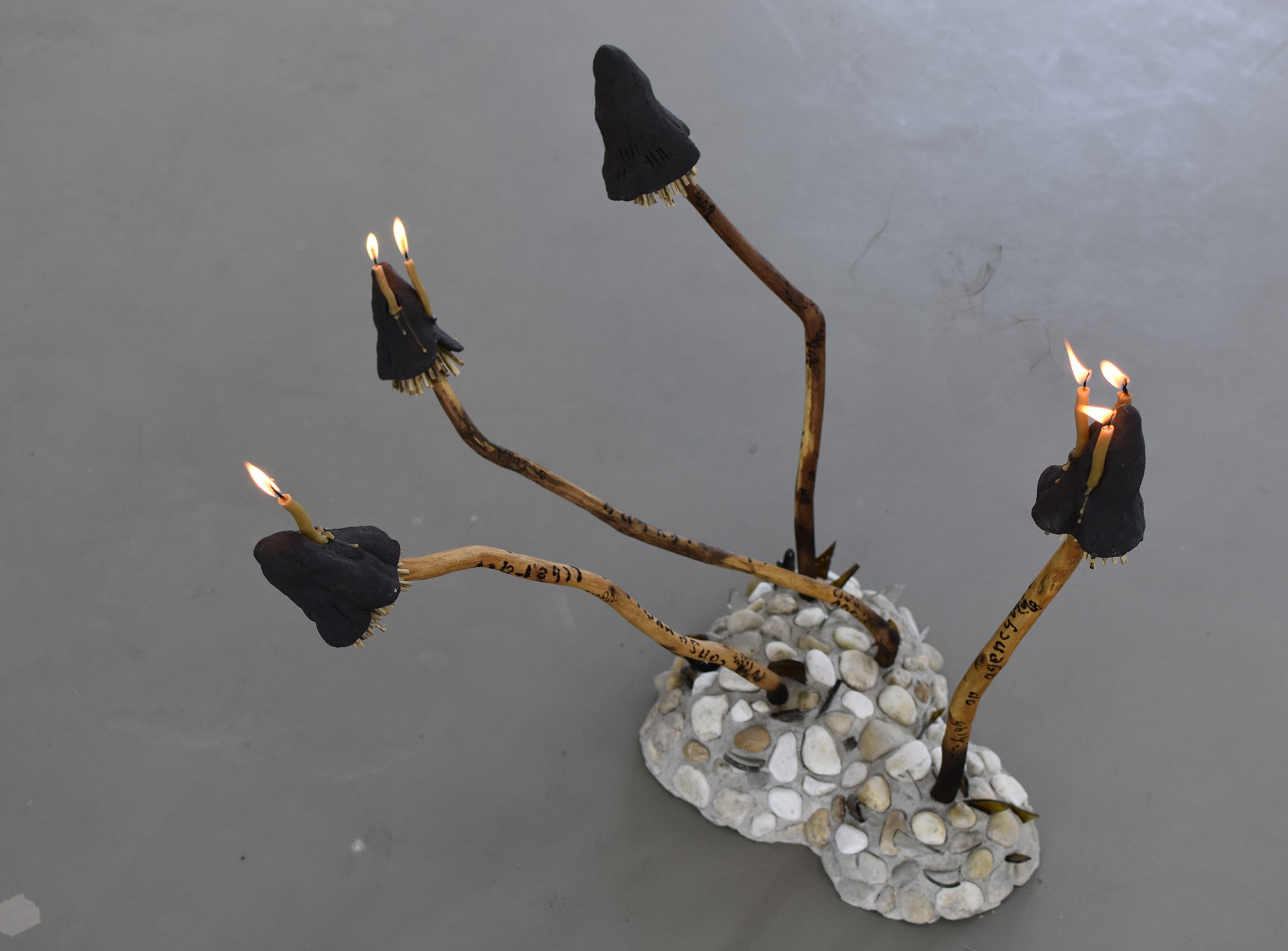
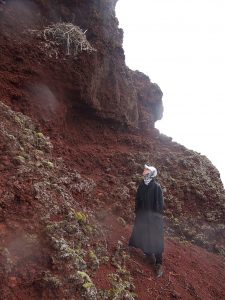 Marius Presterud (b.1980, Drammen) is a Norwegian artist based in Berlin and Oslo. He works across a variety of media; performance, poetry, sculpture and ecoventions. He has toured Europe and been a featured poet at venues in Paris, Berlin and Istanbul, and he has performed in established galleries such as Henie Onstad Art Center, Norway, and Hamburger Bahnhof, Germany. In 2018 he was a debutant at Norway’s 131. National Art Exhibition, Høstutstillingen, and in 2021 he had his first solo exhibition abroad, at Exgirlfriend Gallery, Berlin. Common themes throughout his work are a focus on selfhood, significant otherness and societal health.
Marius Presterud (b.1980, Drammen) is a Norwegian artist based in Berlin and Oslo. He works across a variety of media; performance, poetry, sculpture and ecoventions. He has toured Europe and been a featured poet at venues in Paris, Berlin and Istanbul, and he has performed in established galleries such as Henie Onstad Art Center, Norway, and Hamburger Bahnhof, Germany. In 2018 he was a debutant at Norway’s 131. National Art Exhibition, Høstutstillingen, and in 2021 he had his first solo exhibition abroad, at Exgirlfriend Gallery, Berlin. Common themes throughout his work are a focus on selfhood, significant otherness and societal health.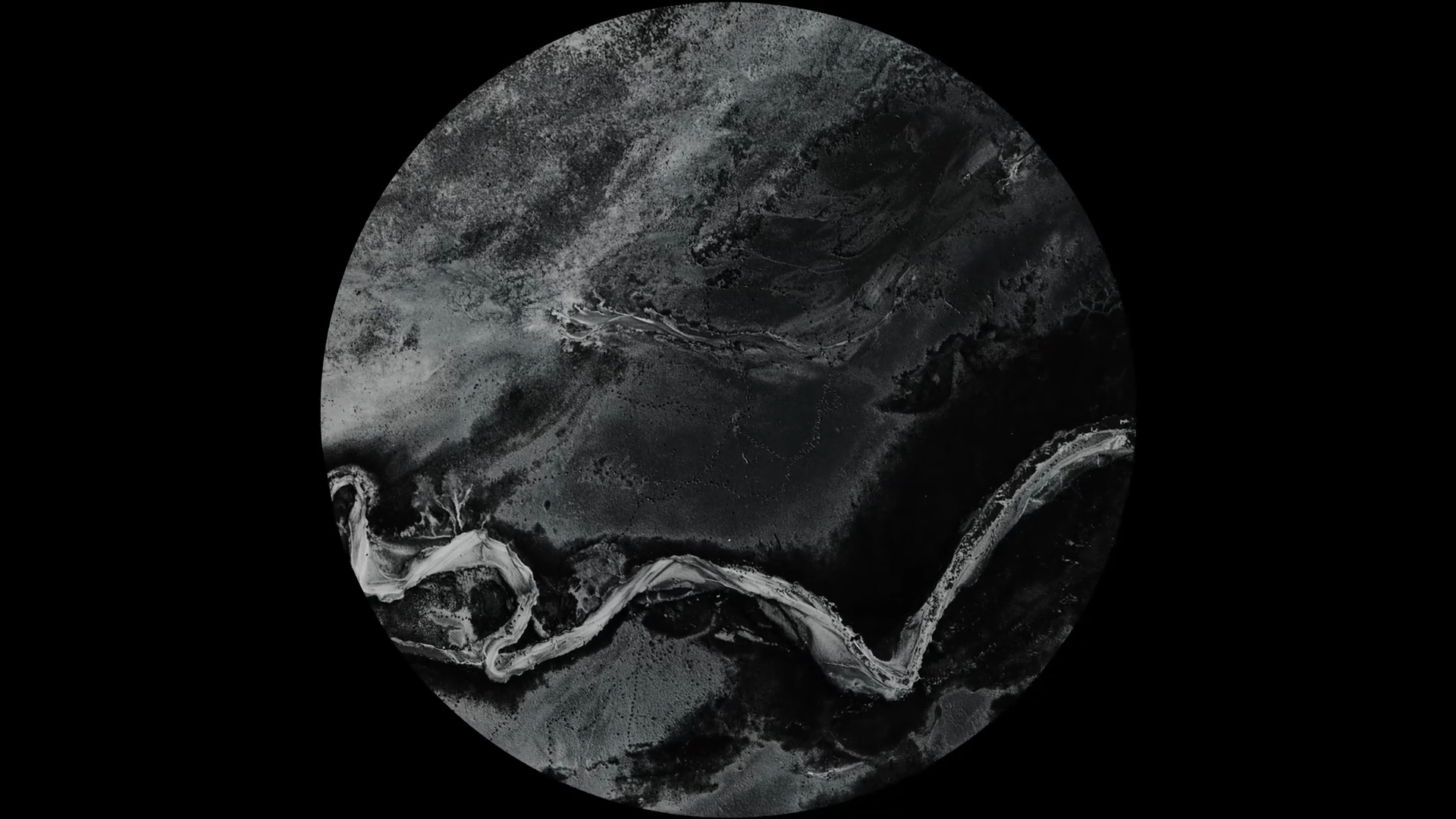
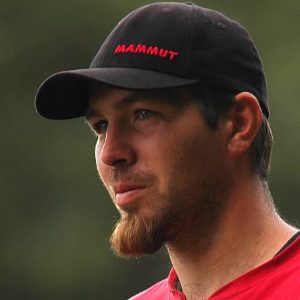
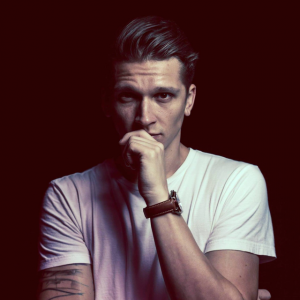
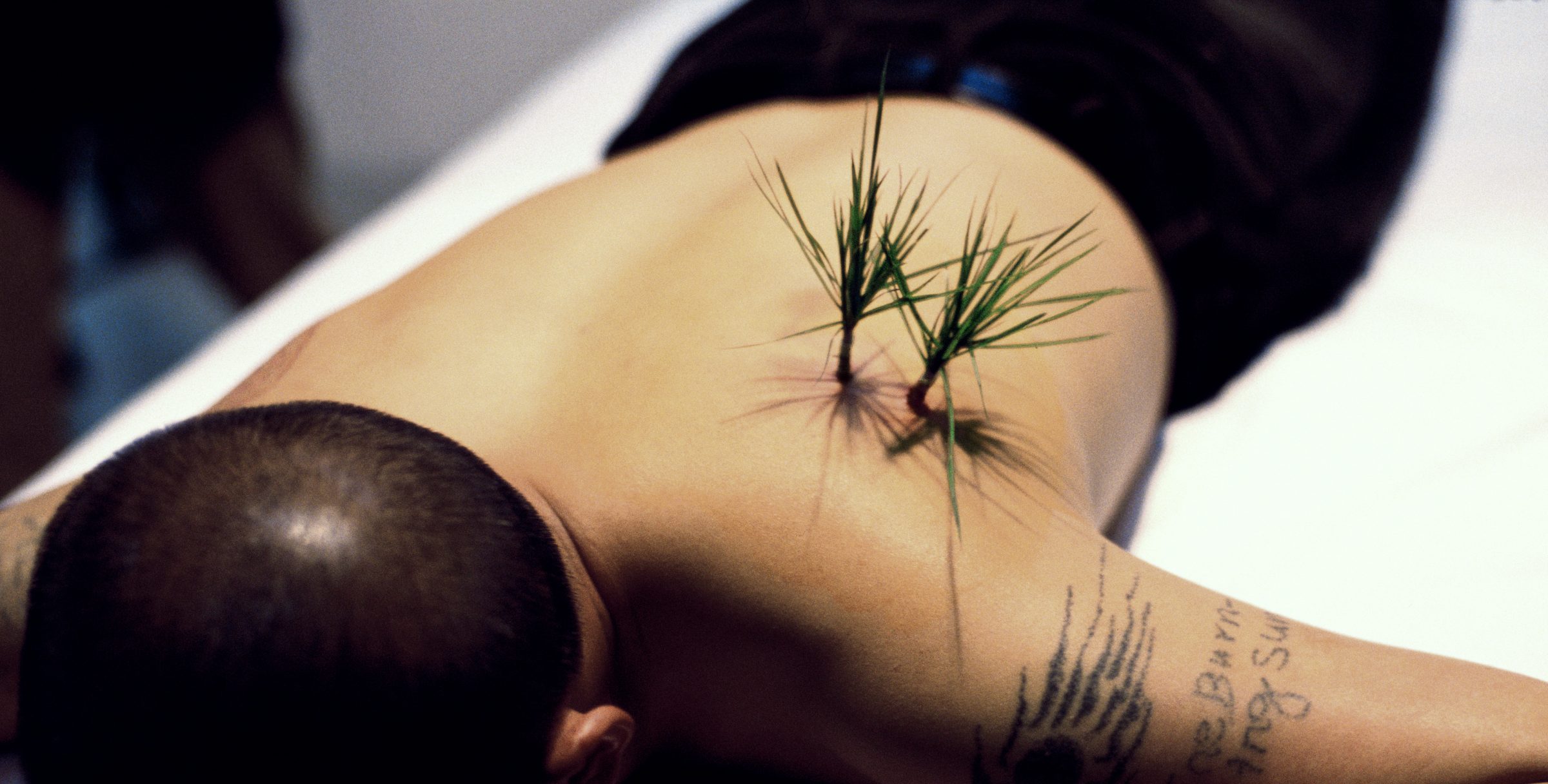
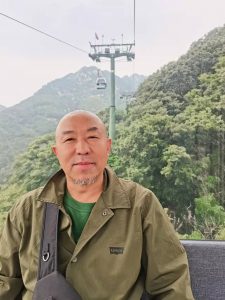 Yang Zhichao is one of China’s most prominent performance artists.
Yang Zhichao is one of China’s most prominent performance artists. 